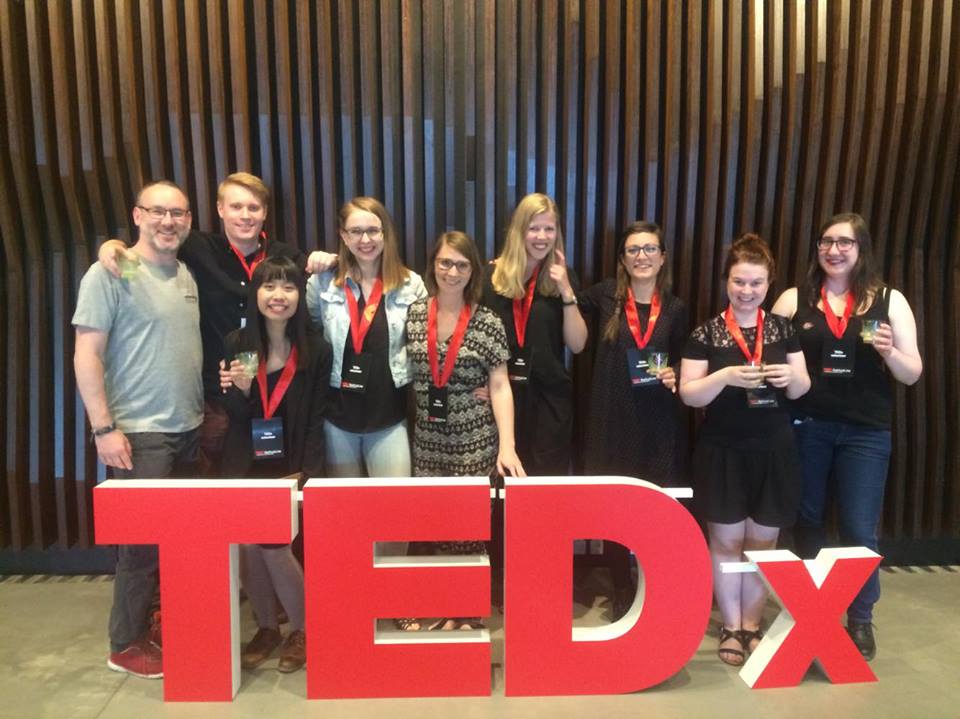This is the first edition of Indonesia Mengglobal Essay Clinic, our effort to provide tangible help for Indonesian applicants to US colleges. By analyzing other people’s essays (what works, what does not work, what’s good, what’s bad), we hope you can learn how to write an effective application essay and how to continuously improve your own essay. We also accept essay submissions. Click here to learn how to participate.
Author’s Note:
This essay was submitted as part of an undergraduate application to two top-10 U.S. universities in Computer Science (one accepts, one rejects). I wrote this in about two days, recycling most of the sentences from a 1200-word essay written for another university. The original took 1.5 months to write and revise. The biggest challenge for me is to extract the important points of the original and get my point across succinctly within 300 words.
Essay:
Please discuss your academic interests and/or professional goals (maximum 300 words)
I had envisioned that moment for years, but that night, I was too delirious to grasp it. As I stood in the podium and looked at the shiny medal of the International Olympiad in Informatics 2009 on my neck, teardrops blurred my eyes. Five years ago, a senior told me that there was no place for girls in the National Team. Yet there I was, standing among the best high school programmers, as the first rank of my country and second-ranked female worldwide.
“You could create – what’s good in simply using?” my brother said in 2003, sparking my interest. I had no teachers or classes in informatics, thus since early on, I was led to perceive programming not as an academic subject, but as an exploration led my own curiosity. I was taken by how powerful a dozen lines of those cryptic words could be. Soon, I progressed from coding multiplications of big numbers to implementing advanced algorithms. When I designed the most efficient distribution route for my father’s business by using Maximum Flow modeling, I started to see this hobby as something that I want to do for the rest of my life.
Through Computer Science, I want to invent. I aspire to continue my education in Computer Science until PhD level and delve in research throughout my undergraduate study. I am interested in Artificial Intelligence, especially with the idea of making a robot that can play sports. Badminton, for example. Can a robot within seconds react to the opponent’s ball and decide where to place its return? Can it play doubles by communicating with its partner and working together to cover the court? Fascinating!
I have big dreams, and [UNIVERSITY NAME] provides the best faculty and facility to support me in achieving them.
Feedback from Stevia Angesty:
I like how the writer tried to squeeze in her real achievements (Olympiad, efficient distribution route for family business, etc) into the essay without being snobbish. The writer showed her effort, passion, and direction. The essay gives the impression that she knows what she is doing, where she is heading to, and what she needs to help her go to where she wants to be. Very nicely written, considering how much information she conveyed with this short essay.
One caveat : “You could create – what’s good in simply using?” can be made clearer. My guess is, the writer left “–” blank on purpose. Otherwise, great essay.
Feedback from Paul Edison:
IN A NUTSHELL:
Overall, this is a strong personal statement that manages to get so many great qualities of the writer across within 300 words. As a reader, I feel like this person is intelligent yet humble, curious, and passionate (Note: When writing your personal statement, don’t say you’re “passionate” about your proposed major. Show it!) about informatics. There are some writing quirks and participation in desultory traditions, but not enough to make this person any less desirable. Her good use of storytelling and, well, finishing second in the Olympics for brainiacs make this person kinda hard to forget.
IN-DEPTH BLOW-BY-BLOW COMMENTARY:
I like how many things the first paragraph does at once! It shows off the writer’s achievement but coats it in her sentiment of humble disbelief (I believe the coupling of humility and awesomeness is usually sought after in academic communities), while at the same time playing the minority gender card, which implies more than ordinary tenacity and grace under pressure and challenges. The first paragraph tries to tell the reader why the writer, and as a consequence, the background story of her budding academic interest in informatics, matters.
And being the no. 2 high school female programmer in the world kinda matters.
The second paragraph feels the weakest to me. For me, it raises so many questions in this otherwise well-polished essay. Why is the year 2003 so important, for instance? Other question-rising cases include the missing word in the second sentence (did the writer proofread this and have other people proofread this? they should’ve caught this!), the unclear antecedent of what ‘those cryptic words’ is referring to, and why the writer can’t be bothered to include a short appositive to gloss over ‘Maximum Flow modeling.’
The third paragraph shows the writer’s interest in her proposed field, which is good. The writing feels a little raw, however, like it’s still at the brainstorming stage. The robot example could be developed further, I think, to answer a bigger ‘so-what’ question. I think the writer poses an interesting question, an interesting topic of research that she might have an inclination to pursue (which is great!). I just think this paragraph could be so much stronger if, without getting overly technical, she also expands on the implication of an AI technology that can make split second cooperative collective decision and respond in meaningful ways. The “fascinating” conclusion almost feels like the writer’s running a little too close to submission deadline and doesn’t know what else to say (which, admittedly, isn’t very fascinating)..
The last paragraph is the usual attempt to ingratiate the admission board, which, I think, despite being so common, is rather ineffective. It says nothing about the university, and it says nothing about the writer. The board already know they’re great. They probably also know that most applicants also apply to other schools, effectively making any superlative comments dishonest (“we’re the best? please tell me how all five schools (twelve to twenty in some cases) you’re applying to this year have the best faculty in the world”). A better way to go about this, if you must, is to actually find out something very specific about the university that you’re applying to and explain how it relates to your interest in the university (e.g. “Prof. Schmidt’s research in the impact of the Heisenberg principle on the unobserved mating rituals of orangutans in Papua rainforest draws me to this university because…”).
THE MORAL OF THE STORY:
- Show, not tell. Your stories make you unique, make you memorable.
- Be specific. “I want to be a successful programmer” or “I want to write apps that help people” is easy to forget. “Robots that can play tennis” isn’t (imagine Cylons Open, hosted in Caprica).












Just an info, in the 70s, there was a novel written by Arswendo Atmowiloto telling about a robot who can play badminton.
You really create a very good narrative essay. You have a good skill in writing and many people are also eager to know how to write that kind of essay also. At least they can be able to get some ideas from it.
A really great essay, thanks for sharing